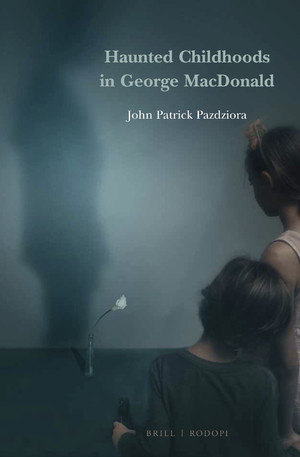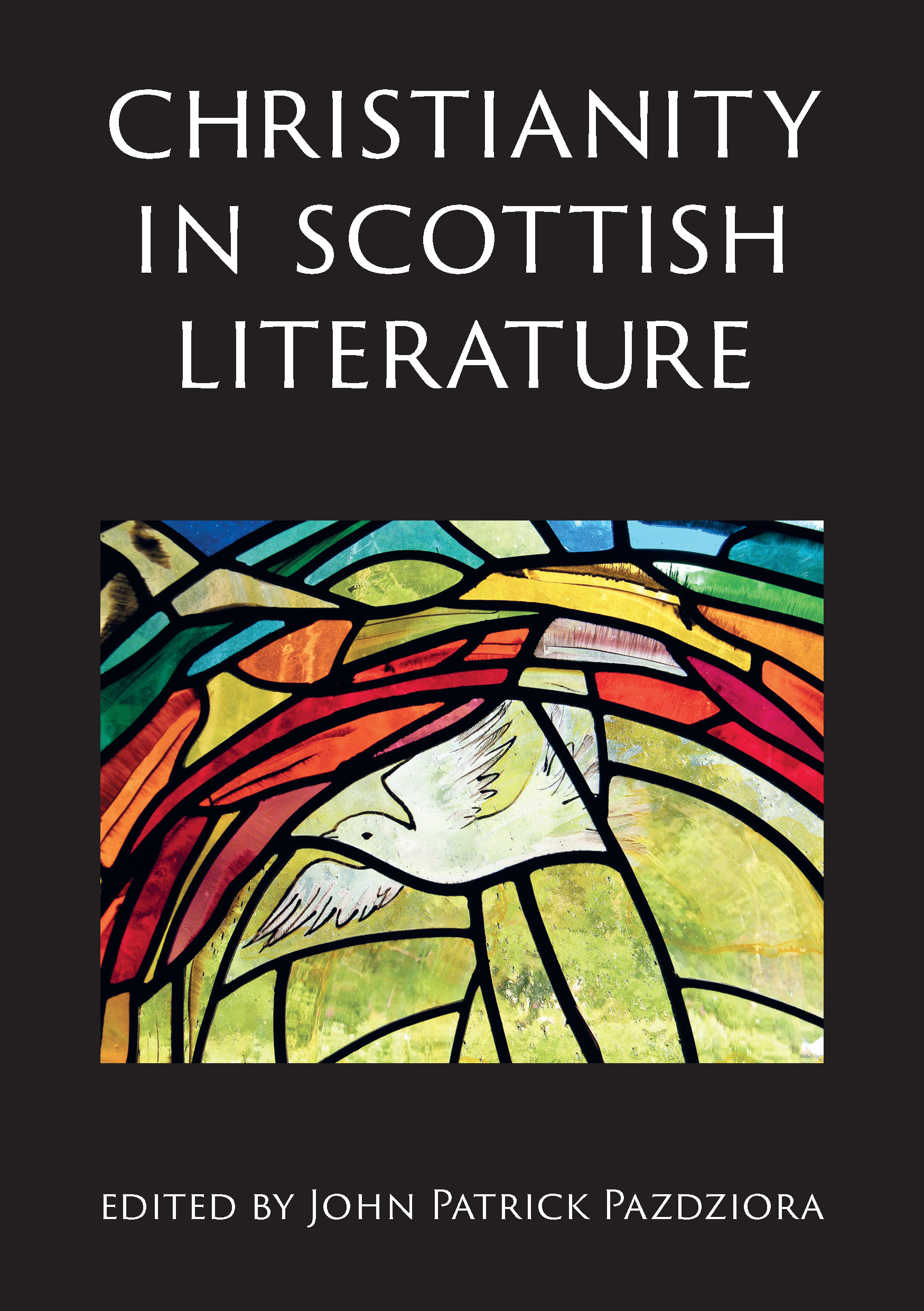
書籍名
SCROLL: Scottish Cultural Review of Language and Literature, Volume 29 Haunted Childhoods in George MacDonald
判型など
221ページ、ハードカバー
言語
英語
発行年月日
2020年8月27日
ISBN コード
978-90-04-42059-5
出版社
Brill | Rodopi
出版社URL
学内図書館貸出状況(OPAC)
英語版ページ指定
ジョージ・マクドナルド (1824-1905) は、最も影響力のあったスコットランドの作家の一人である。博識な作家で、詩、説教、エッセイ、小説などを著した。そして、子どもたちを深く敬愛し、深遠で複雑な感情を捉えた児童文学作品を手掛け、スコットランドの民話と遊び心に満ちた自らの想像力を融合させ、驚くほど美しいおとぎ話を生み出した。
敬虔なキリスト教信者であったマクドナルドは、 世界は神の愛によって存在すると信じていたが、その一方で、死や死別の苦しみは、愛とは対極にあるようにも見える。彼は、こういった痛みを十分に認識していた。なぜなら、作家として執筆を始めたときには既に母親、三人の兄弟、腹違いの妹、そして父親を失った経験を有していたからである。結果、マクドナルドは、神の愛を信じる宗教的信念と、喪失の経験を両立させるのに苦労することとなる。
本書、『Haunted Childhoods in George MacDonald』が考察したのは、子どもの読者が死について考えることを、マクドナルドがどのように助けたのかという問題である。第一章では、マクドナルドが子どものために書いた最初の作品を取り上げている。弟のAlecが結核で死の床にあった1853年に書かれた13歳の腹違いの妹Bellaに宛てた手紙である。気まぐれと優しさに満ちた文章で、誰もが望むことのできる最大の善として神の愛を信じるようBellaに促している。
イングランド南部にあるマクドナルドの自宅から送られたこの手紙には、スコットランド北部の家族への深いホームシックの気持ちも吐露されている。しかし、続くマクドナルドのスコットランド訪問は悲しみに満ちたものであった。第二章では、1855年にマクドナルドが Bellaも死にかけているという知らせを受けたことについて詳述している。Bellaに会い、両親を助けるためにマクドナルドは急遽家路についた。しかし、当時の限られた医療では、病気で衰弱していくBellaが苦しまないようにする以外にできることはほとんど無かった。そのため、マクドナルドはスコットランドの田舎で長い散歩をし、父親と長い会話をし、Bellaにおとぎ話を読みきかせることとなる。
これらのイメージはマクドナルドの作品を通じて繰り返し現れる。スコットランドの景色、深遠な会話、おとぎ話、そしてそれらの底流には死への恐怖が存在している。第三章では、マクドナルドの初期のゴシック小説に表出するこれらの要素に注目している。一連の不気味な物語では、墓地から幽霊が這い出し、暗い森の中を影がゆっくり進んでいくように、死への恐怖が直感的で写実的に描かれている。
マクドナルドが著した児童向けの物語はかなり異色である。例えば、第四章では、病で死にゆく少年の物語『北風のうしろの国』(1871) について考察が為される。少年を両親から連れ去ろうとする北風は、背の高い美しい女性で、少年と一緒にロンドンを飛び回り素晴らしい冒険をする。この物語の中での病気と死はほとんど魅力的に見え、より幸せな世界への旅路となっている。
しかし子どもたちもまた、死や死別に恐怖を感じている。第五章では、マクドナルドが率直に子どもたちの恐怖に向き合い、安心感を与えている様を紹介している。彼の児童書それぞれには、子どもの主人公が、宇宙の中で自分だけが完全に孤立していて他に誰もいないという、とてつもない恐怖を経験する瞬間が描かれている。しかしその後、子どもは親または祖父母によって見つけられ、慰められるのである。
最後の章では、マクドナルドの達成したことがスコットランド文学においてほとんど前例のないものであることが示唆される。マクドナルドはおとぎ話を使って、「神の愛は死の中にあっても世界を支えている」という、自らが苦労して獲得した信念を、子どもたちが理解し始めることを助けたのである。
(紹介文執筆者: 総合文化研究科・教養学部 特任講師 ジョン・パトリック・パズディオーラ / 2020)
本の目次
Introduction: ‘The harvest of the grave’
0.1 ‘Stranded by night on the low coast of Death’
0.2 ‘To no system could I subscribe’
0.3 ‘The essence of religion’
0.4 ‘Joy of Being’
0.5 Contents Outline
1 ‘Is there a fairy-country, brother?’: Letters from Arundel
1.1 ‘The best thing’
1.2 ‘Serious difficulties in the church’
1.3 ‘The aspiring child’
1.4 ‘Trying to catch the corn-scraich’
1.5 ‘The theme that most inspired George MacDonald’
2 ‘Any other child is like me’: Sickness at Huntly
2.1 ‘I should not have known her’
2.2 ‘Childness’
2.3 ‘Trees are growing coffins’
2.4 ‘The outward form of birth’
3 ‘A whole churchyard of spectres’: Death from Within
3.1 ‘The Psyche is aloft’
3.2 ‘I was dead, and right content’
3.3 ‘The Father of fathers’
3.4 ‘I brooded over tales of terror’
4 ‘Death and other painful realities’: The Dying Child
4.1 ‘What he did remember was very hard to tell’
4.2 ‘I do not think he was right’
4.3 ‘I thought you were dead’
4.4 ‘People call me by dreadful names’
5 ‘Questions that can never be answered’: The Child Alone
5.1 ‘The sun, moon, and stars lived there’
5.2 ‘Jesus is dead’
5.3 ‘Mountains and valleys’
5.4 ‘Alone in the strange night’
5.5 ‘We are all orphans, you and I’
6 ‘I should so like to be myself’: The Stolen Child
6.1 ‘I don’t like the fairies’
6.2 ‘Hold me fast and fear me not’
6.3 ‘The right critics of them will be children’
Conclusion: ‘Now we must wait’
Bibliography
Index
関連情報
David Robb (University of Dundee): “John Patrick Pazdziora’s new book offers a notably clear, focused, and carefully argued account of a crucial dimension of George MacDonald’s vision: his treatment of the theme of death in that central aspect of his achievement, his writing for children…. Notably, also, the book firmly roots its account of MacDonald in his Scottish origins, experiences, and inheritance.”
David Jasper (University of Glasgow): “This is a book about children and other serious things—haunted childhoods, death, and mystical theology. It reveals George MacDonald as far more than the Victorian genius of C. S. Lewis, but a major Scottish writer and, in his way, a serious religious thinker.… John Pazdziora’s work makes a profound contribution to the study of literature and theology as well as being a major contribution to work on the writings of George MacDonald.”
Marysa Demoor (Ghent University): “Pazdziora’s innovative and insightful exploration of the work of George MacDonald is a must-read for all those scholars intrigued by the late nineteenth-century infatuation with death, the young child, and the imprint of religion, and the tensions within that unlikely combination.”



 書籍検索
書籍検索


